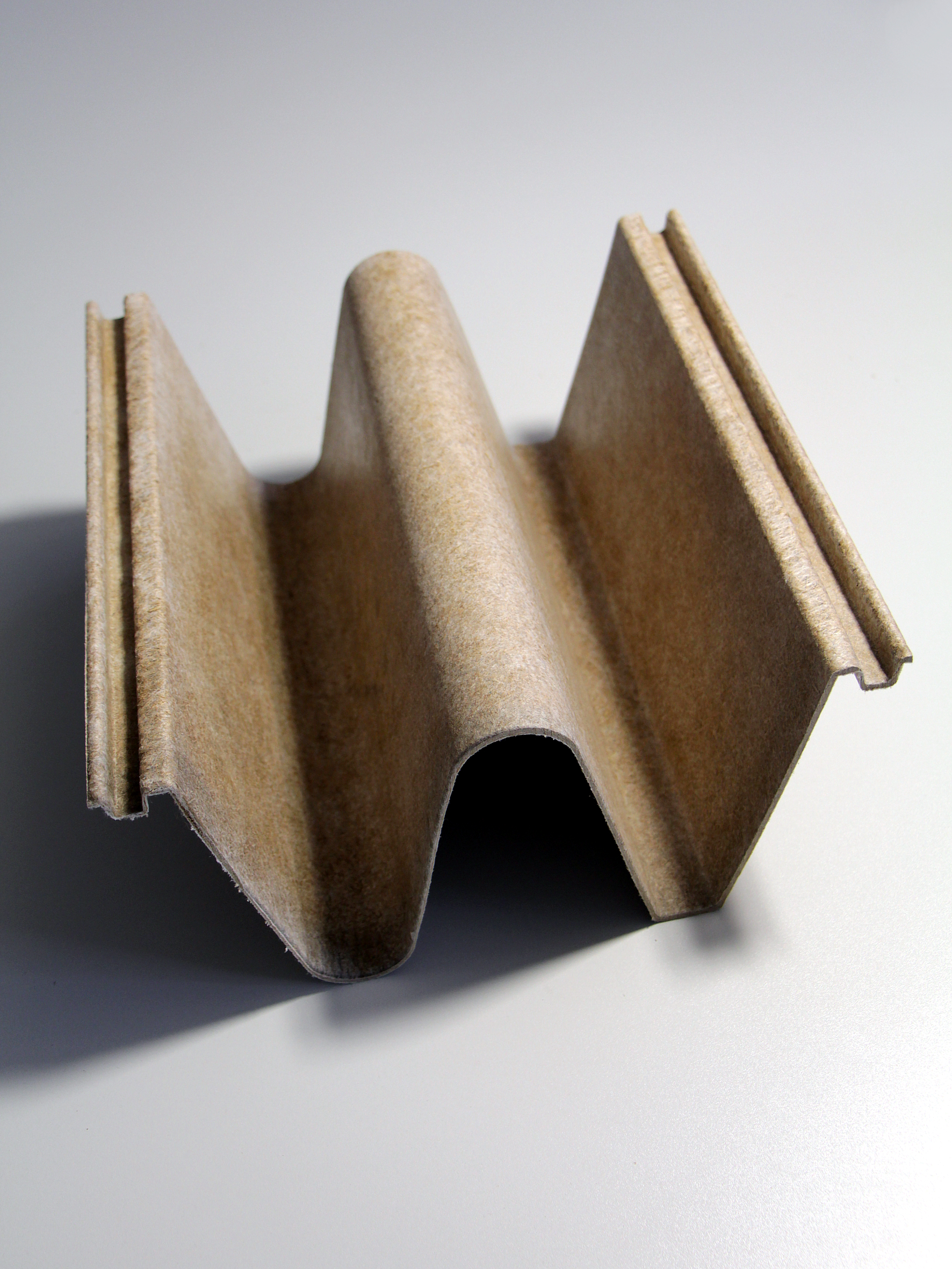In the field of process technologies, we develop environmentally friendly, resource-conserving composites from wood, other lignocellulose materials and secondary raw materials such as recovered wood and production waste. The spectrum of material development ranges from traditional particle and fiber board, to Engineered Wood Products (OSB, plywood, LVL) and on to Scrimber wood, wood foams, 3D molded parts and material composites..
Process technologies for wood-based materials and alternative raw materials
Research focus
By means of laboratory facilities and semi-technical and industrial systems, it is possible to investigate all of the significant questions pertaining to material technologies. This includes work on mechanical-hygric material testing and examining the characteristics of materials and products with regard to their insulation and emission properties. Projects in the department “Technology for Wood-Based Materials” look at the development of new products or product types and their optimization as well as the processes themselves.
Due to the current developments on the raw wood market (from coniferous woods to deciduous woods and/or from smallwood to large timber), one focus of our work is currently on finding process technology solutions for integrating domestic deciduous woods into existing coniferous wood production lines. Other tasks include looking at mechanical-hygric optimization of newly developed materials based on deciduous woods and wood substitutes, for example annual plants, through to market maturity. Our department is also working on the related topic of characterization and strategies to avoid unpleasant odors and disruptive factors in the processing of these raw materials. We are investigating the question of which process steps can cause unpleasant odors and disruptive factors and which actions can be taken to prevent them.
Besides the increased integration of deciduous wood types in coniferous-wood-dominated production lines (substitution approach), the department “Technology for Wood-Based Materials” looks intensively at developing new materials and optimized materials based on large dimension timber focusing on deciduous woods. We have purchased an industrial peeling machine as a basis for development work on layered materials / engineered wood products.
In addition to the typical wood-based materials, we are currently working heavily on 3D molded parts for a variety of applications in the automotive, transport and furniture industries. The focus is on maximizing the proportion of natural fibers while maintaining the required mechanical-hygric material characteristics. Approaches for identifying and avoiding unpleasant odors from these parts are of considerable relevance here. We cooperate on this topic with our colleagues from other Fraunhofer WKI departments.
 Fraunhofer Institute for Wood Research
Fraunhofer Institute for Wood Research 